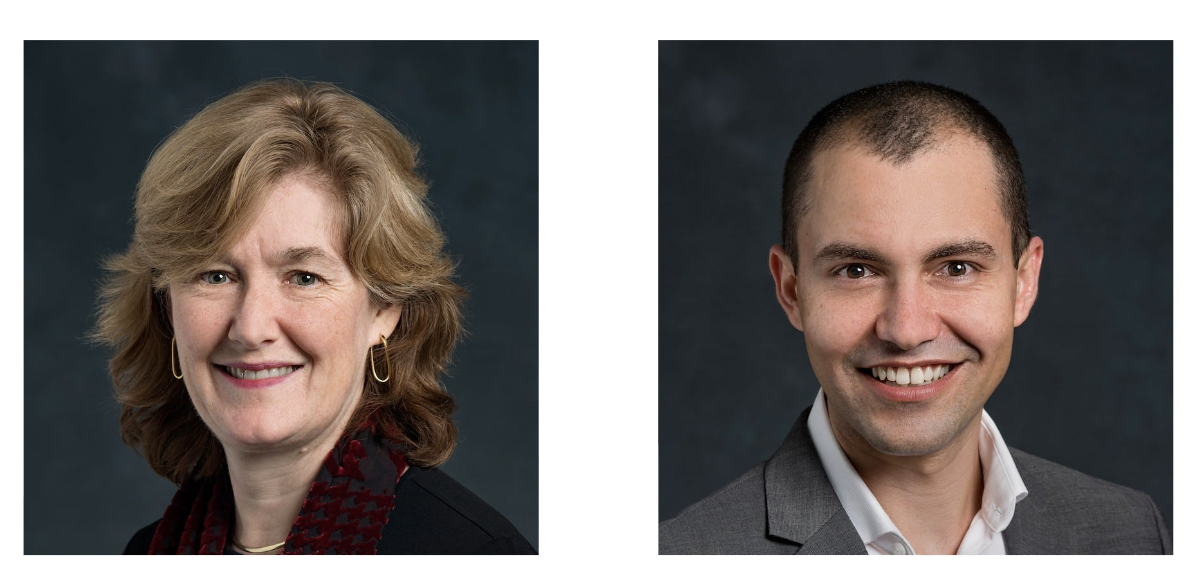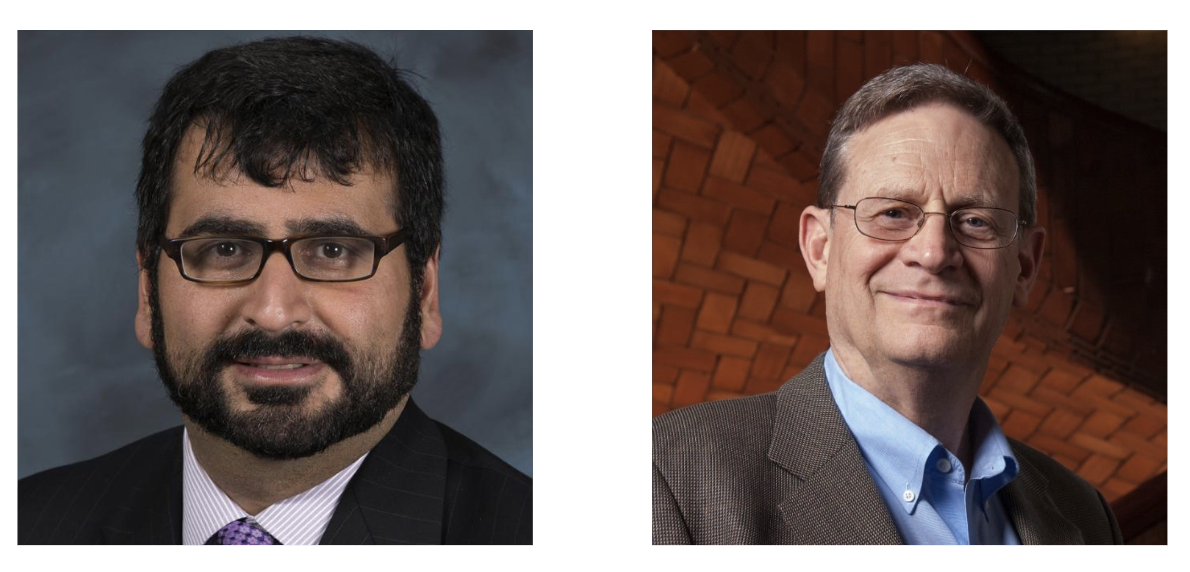
Scott Institute Seed Grants Advance Clean Energy Research at Carnegie Mellon University
By Cody Januszko
Media Inquiries- Digital Communications Manager
The Wilton E. Scott Institute for Energy Innovation at Carnegie Mellon University (CMU) advances the development of technologies, systems, and policies that will accelerate the transition to a sustainable, net-zero emissions future. With more than 160 CMU Faculty Affiliates and 15 Energy Fellows, the Scott Institute is driving the future of clean energy and climate tech at CMU. Since the Scott Institute’s founding in 2012, a core initiative has been the Seed Grants for Energy Research program. With this funding, researchers across the university receive important early-stage support for developing cutting-edge energy research.
Now in its twelfth year, Scott Institute Seed Grants have provided over $3.7 million in funding to 80 research teams, which resulted in an additional $17 million in follow-on funding from government and external funding sponsors. Receiving more than $4 in additional research funding from external sources for every $1 invested by the Scott Institute demonstrates the strength of CMU’s faculty and their ideas in energy innovation.
In 2024, there were 35 Scott Institute Seed Grant submissions, requesting nearly $2.2 million in funding. This year’s seven awardees will receive a total of nearly $400,000. Five of these awardees will receive funding to initiate research that tackles issues related to decarbonization, energy equity, and resilience. The final two awardees will receive funding to update and repair essential laboratory equipment to conduct experiments that advance the world’s understanding of climate change and decarbonization.
This year’s awardees span four colleges at CMU – the Mellon College of Science, the Heinz College of Information Systems and Public Policy, the College of Fine Arts, and the College of Engineering.
“Innovation is in Carnegie Mellon’s DNA. We are excited to support these seven awards spanning our whole campus, because all of them show a high potential to grow and lead to substantive impact on clean energy and climate innovation,” said Costa Samaras, Director of the Scott Institute.
“Innovation is in Carnegie Mellon’s DNA. We are excited to support these seven awards spanning our whole campus, because all of them show a high potential to grow and lead to substantive impact on clean energy and climate innovation,” said Costa Samaras, Director of the Scott Institute.
Two Scott Institute Grand Challenge Partnerships are contributing a combined $100,000 in funding to this year’s Seed Grants. The first partnership comes from CMU alumni Yeming and Aaron Rankin of Rankin Ventures. The second partnership is with Trane Technologies. The Scott Institute is excited to work with these organizations as we continue to grow our Seed Grant program.
“Grand Challenge partnerships enable the Scott Institute to accelerate innovation and its impact on decarbonization and energy system resilience,” said Valerie Karplus, Associate Director of the Scott Institute. “We are proud to work with these visionary individuals and organizations to help enable the transformative climate change solutions envisioned by this year’s seed awardees.”
2024 Scott Institute Seed Funding Awardees

Assistant Professor of Chemistry Stefanie Sydlik and Assistant Professor of Civil and Environmental Engineering Gerald Wang were awarded seed funds for their project, “Decarbonizing Plastics through the Development of Polymer-Functional-Graphene-Oxide Nanocomposites.” Their research aims to help decarbonize plastics by diverting end of life waste to be used in anti-corrosion coating for energy infrastructure.

Professor of Materials Science and Engineering and Director of the EST&P Program Paul Salvador and Professor of Materials Science and Engineering Mohammad Islam were awarded seed funds for their project, “Assessment of MOF-Decorated SWCNT Aerogels as Sorbents for Direct Air Capture via Electrothermal Swing Adsorption.” Combining Energy Science, Technology & Policy and Materials Science and Engineering expertise, this project will involve property characterization, prototype development and an analysis of the aerogels as potential technologies for the direct air capture of carbon dioxide from the atmosphere.

Associate Professor of Economics and Public Policy Edson Severnini and Professor of Economics and Public Policy Karen Clay were awarded seed funds for their project, “Access to Credit and Energy Transitions: Insights from the Shift in Home Heating from Coal to Natural Gas and Electricity.” Severnini and Clay will study the socio-economic, environmental, and technological dimensions of past energy transitions – specifically the transition from coal to natural gas and electricity for home heating – to help inform future policy decisions.
 Assistant Professor of Architecture Azadeh Omidfar Sawyer was awarded seed funds for her project, “AI-Driven Building Energy and Carbon Emissions Benchmarking for Decarbonization and Climate Resilience.” This research addresses the need to reduce carbon emissions and energy use in buildings across the country. Sawyer will use artificial intelligence to better model and benchmark building energy consumption to identify ambitious and achievable decarbonization targets.
Assistant Professor of Architecture Azadeh Omidfar Sawyer was awarded seed funds for her project, “AI-Driven Building Energy and Carbon Emissions Benchmarking for Decarbonization and Climate Resilience.” This research addresses the need to reduce carbon emissions and energy use in buildings across the country. Sawyer will use artificial intelligence to better model and benchmark building energy consumption to identify ambitious and achievable decarbonization targets.

Professor of Engineering and Public Policy and Electrical and Computer Engineering Ramteen Sioshansi and Hamerschlag University Professor of Engineering and Public Policy and Electrical and Computer Engineering Granger Morgan were awarded seed funds for their project, “Improving Electric-Power Resilience.” Their project will model how planning and operational decisions in the electric power sector can help to mitigate the impact of electric power supply disruptions, such as outages due to severe storms expected to increase in frequency and duration with climate change.
 Thomas Lord University Professor of Chemistry, Chemical Engineering and Engineering and Public Policy Neil Donahue was awarded funding for an upgrade to the FIGAERO Gas and Aerosol Mass Spectrometer Inlet. The upgrade will increase the machine’s ability to detect specific particles at low temperatures in the upper troposphere, which are especially important to understanding climate change because they span vast areas over the oceans and affect how clouds reflect sunlight.
Thomas Lord University Professor of Chemistry, Chemical Engineering and Engineering and Public Policy Neil Donahue was awarded funding for an upgrade to the FIGAERO Gas and Aerosol Mass Spectrometer Inlet. The upgrade will increase the machine’s ability to detect specific particles at low temperatures in the upper troposphere, which are especially important to understanding climate change because they span vast areas over the oceans and affect how clouds reflect sunlight.
Assistant Professor of Materials Science and Engineering S. Mohadeseh Taheri-Mousavi was awarded funding to repair a small-scale induction furnace melter. The device will help Taheri-Mousavi with her research studying mechanisms of how hydrogen affects pipelines and other materials, and it can be used more broadly in trials for new materials for decarbonization like aluminum alloys.